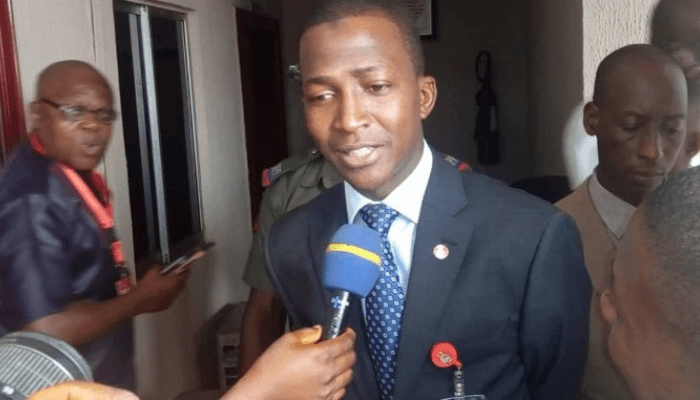
Advertisement
In a move to ensure that all ongoing projects and fixed assets belonging to the Federal Government across the country are accounted for the ad hoc committee set up by the House of Representatives is set to re-invite the Attorney General of the Federation and Minister of Justice, Abubakar Malami (SAN); and Minister of the Federal Capital Territory, Mohammed Bello.
The Chairman of the Economic and Financial Crimes Commission, Abdulrasheed Bawa, is also to appear before the committee.
The committee, at its investigative hearing had on March 11, 2021, invited the ministers and, the EFFC boss in particular to appear before it and explain the circumstances surrounding the transfer of some forfeited assets to the Office of the Attorney General of the Federation.
According to Ademorin Kuye, Chairman of the committee, in an interview with the Punch, the Permanent Secretary, Ministry of Justice and Solicitor-General of the Federation, Mr Dayo Apata (SAN), was supposed to appear before the lawmakers in company with some directors on Thursday but did not show up.
To this, the committee has resolved to re-invite the Federal Government officials for the commencement of the investigation.
The lawmaker said, “After we summoned them, you will recall that the House decided that all ad hoc committees should submit their reports, which we did, and because of that, we could not proceed with the invitations to them. We just presented what they had earlier submitted (to the committee).
“But in its discretion and power, the leadership decided to renew the mandate of the ad hoc committee to continue and that was about the time we proceeded on vacation.
“When we go back now, we are going to renew our invitations and demands for them to submit. They actually asked for more time, when we asked them to come back in two weeks’ time; they asked for more time to bring all the necessary documents.”
Kuye also stated that the report laid before the House had become invalid as the probe continued.
Recall that the last investigative hearing, the acting Director of Assets Forfeiture and Recovery Management, EFCC, Mr Aliyu Yusuf, had appeared before the committee but the lawmakers were not satisfied with the information provided.
Yusuf told the lawmakers that, while forfeited assets had been transferred to the OAGF, adding that operatives of the commission still guard the properties.
His response to the was, “The EFCC has not really undertaken any serious disposal of assets. The only asset that was disposed of was the trucks, which were seized in Port Harcourt (Rivers State capital).
“All the finally forfeited assets – real estate – were intact until this new regulation came into effect, which was made by the Attorney General that requires us to transfer all forfeited assets to the Office of the AGF for management. That regulation was made in October 2019 and we have complied with that; we have forwarded the lists and court orders for all finally forfeited assets to the Office of the AGF for management.”
The EFCC boss also noted that the President General Muhammadu Buhari, had set up an inter-ministerial committee on disposal of forfeited assets, which has a six-month timeframe and has been meeting to complete the assignment.
However, Kuye had faulted the regulation introduced by Malami, saying it breached Section 31 of the EFCC Act, particularly Subsections 1 and 4.
A member of the committee, Lynda Ikpeazu, had also demanded the list of assets already transferred to the OAGF, as well as the timeline of those transfers.
While the assets remained with the OAGF, Kuye decried that they are losing value.
“These are properties that are deteriorating in time. As long as you keep them in custody without disposing them, these properties continue to lose value and the Federal Government is thereby losing money.
“You will recall that the Minister of Finance (Budget and National Planning, Zainab Ahmed) said the budget for this year would be financed or funded from sale of properties and assets like these. And if we don’t have documents to work with, we cannot make the necessary recommendations,” he said.
